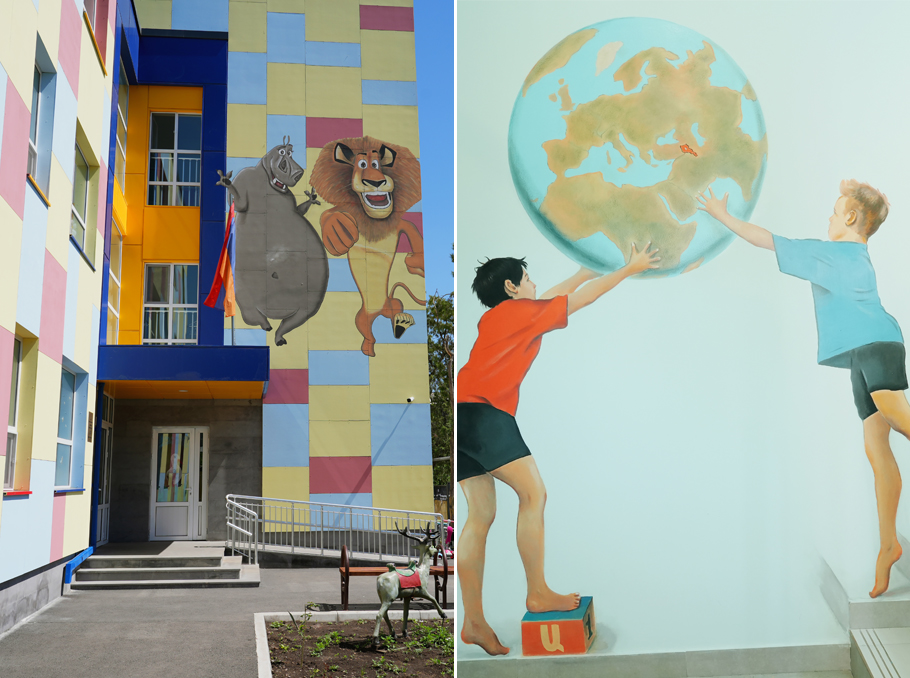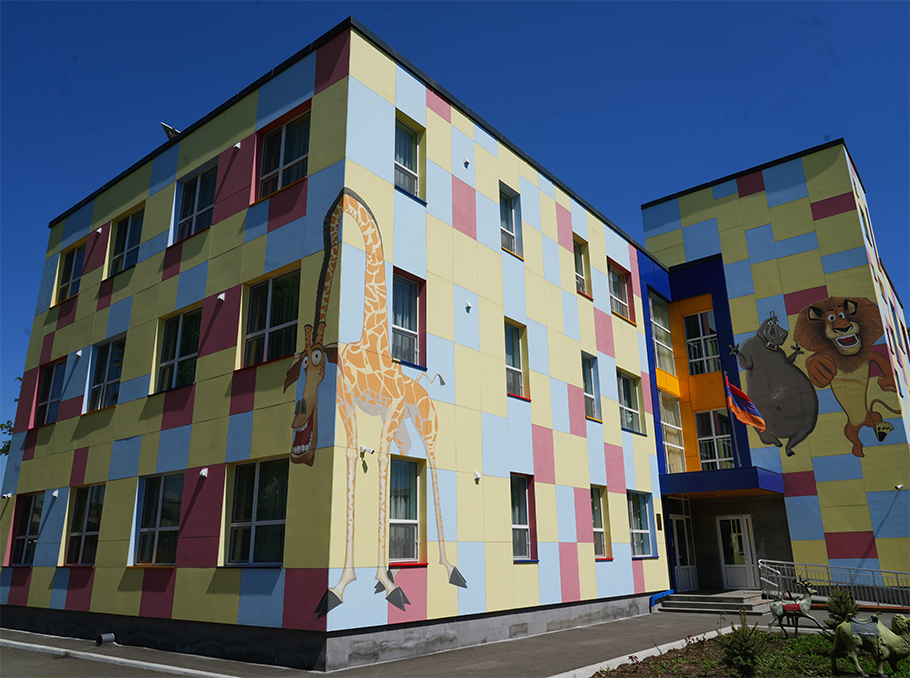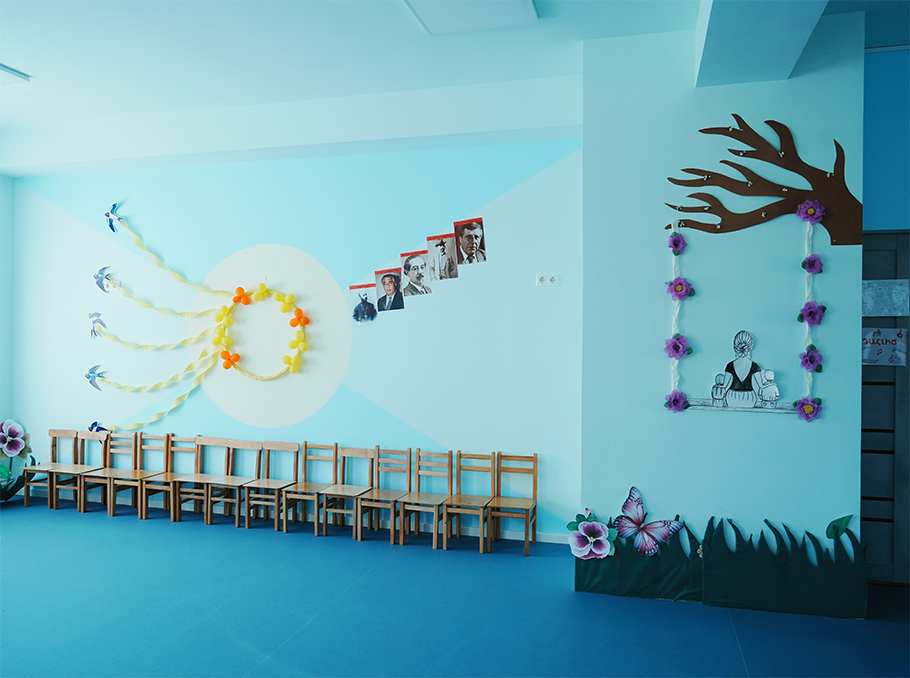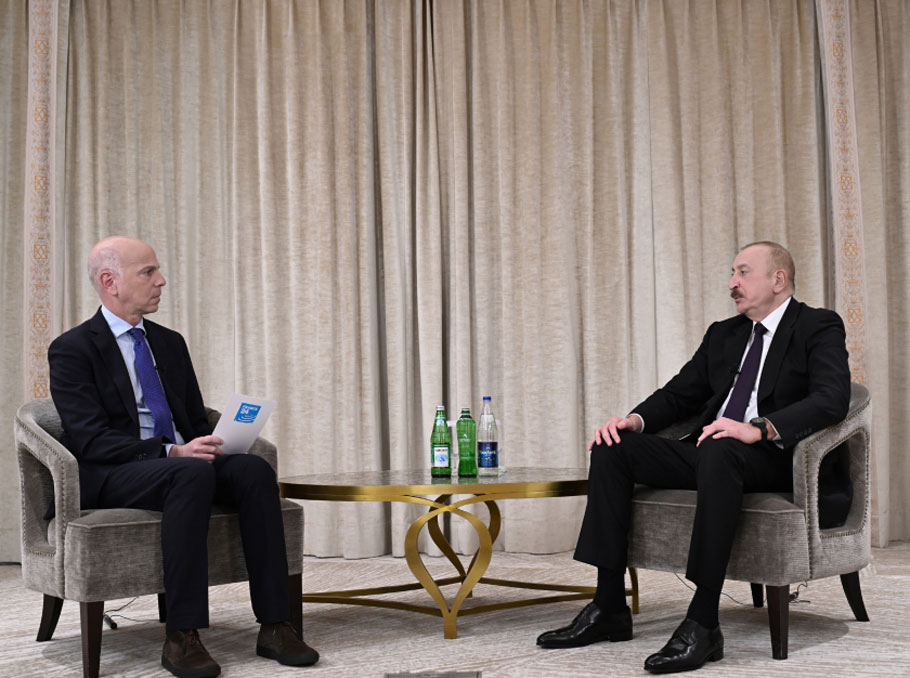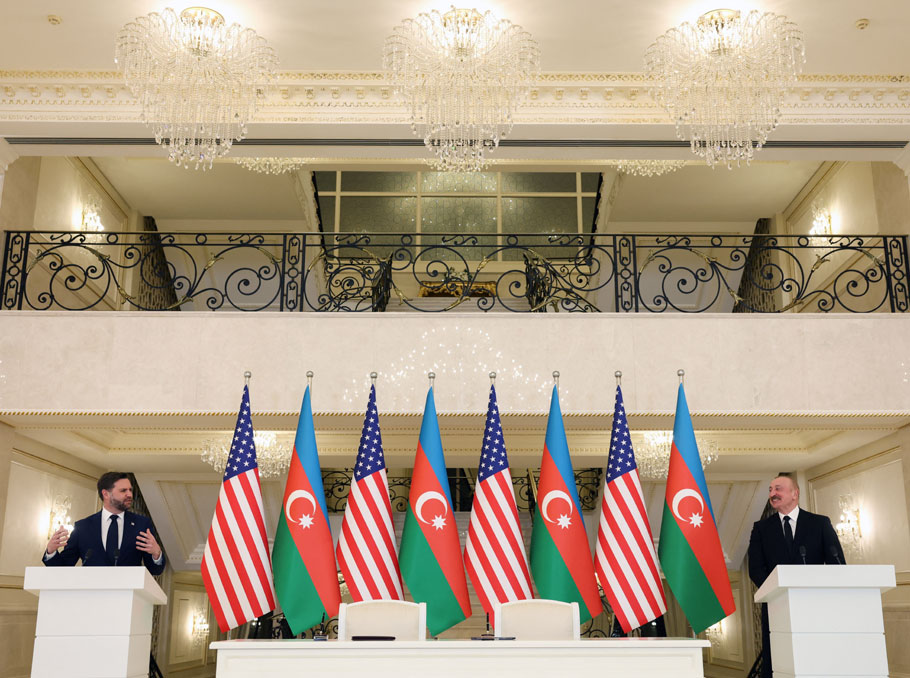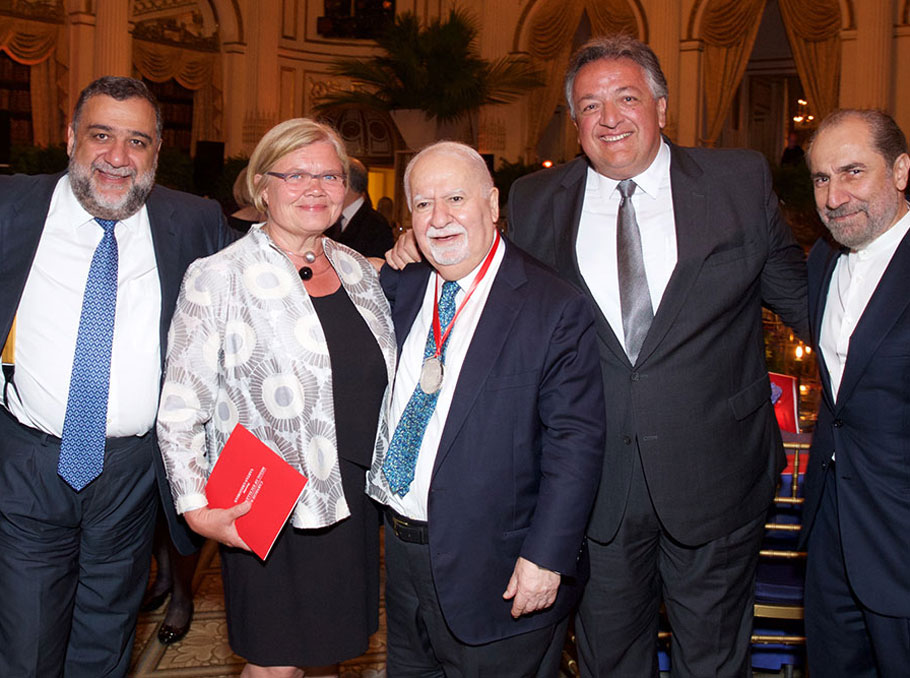Children at Yerevan's Kindergarten No. 135 now enjoy a vibrant, well-lit, warm, and safe environment that fosters comfort and well-being. Since 9 December 2024, the kindergarten has been operating in a newly rehabilitated building designed to be energy-efficient and fully adapted to meet the needs of young children. Kindergarten No. 135, located in the capital, is one of 15 kindergartens that have undergone extensive rehabilitation and renovation incorporating modern energy efficiency and seismic resilience solutions.
These upgrades are part of the Yerevan Energy Efficiency Programme, which aims to enhance seismic resistance, improve energy efficiency, reduce CO2 emissions, and create a more sustainable, comfortable, and safe environment. The project is being implemented in two phases, with co-financing from the European Investment Bank (EIB), the Eastern Europe Energy Efficiency and Environmental Partnership (E5P) Fund, the European Union's Neighborhood Investment Platform, the United Nations Development Programme (UNDP), and the Yerevan Municipality.
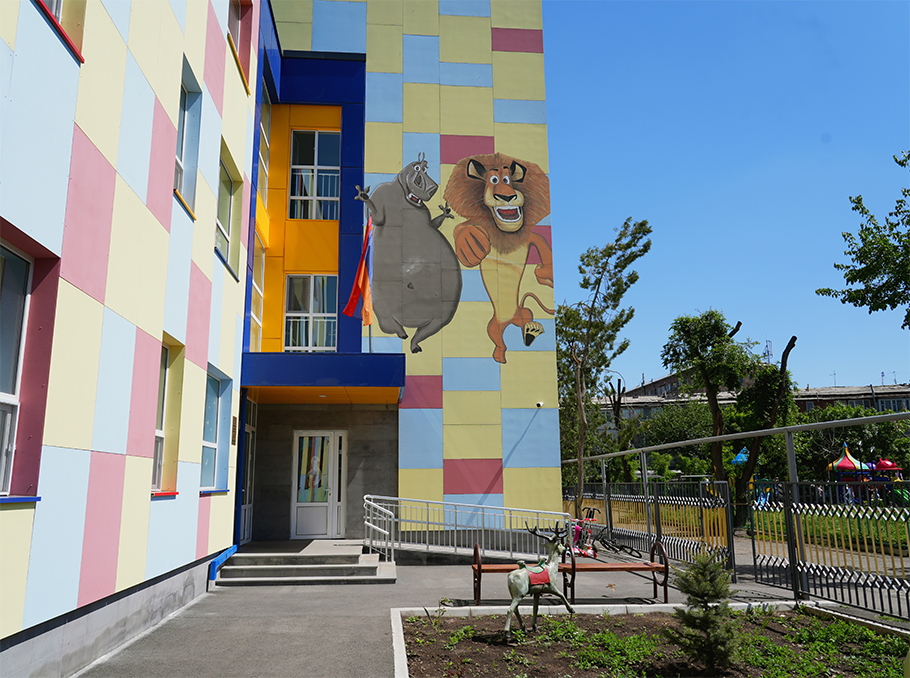
Photo: Mediamax
"On 15 November 2021, the old building of our kindergarten was closed, and after nearly three years, we are proud to have a newly rehabilitated facility. The conditions in the old building were incomparable to those in the renovated space. Previously, the kindergarten operated across two separate buildings, hosting four groups. Today, we accommodate six groups, serving a total of 180 children," said Hripsime Yeritsyan, director of the kindergarten, in an interview with Mediamax.
The rehabilitation of Yerevan Kindergarten No. 135 is part of the first phase of the project, which began in 2017 and is scheduled to conclude in 2025.
The newly renovated kindergarten stands out for its beautiful exterior and interior design, as well as its energy-efficient features. The building’s exterior walls are insulated, and it is equipped with solar photovoltaic panels and solar water heaters.
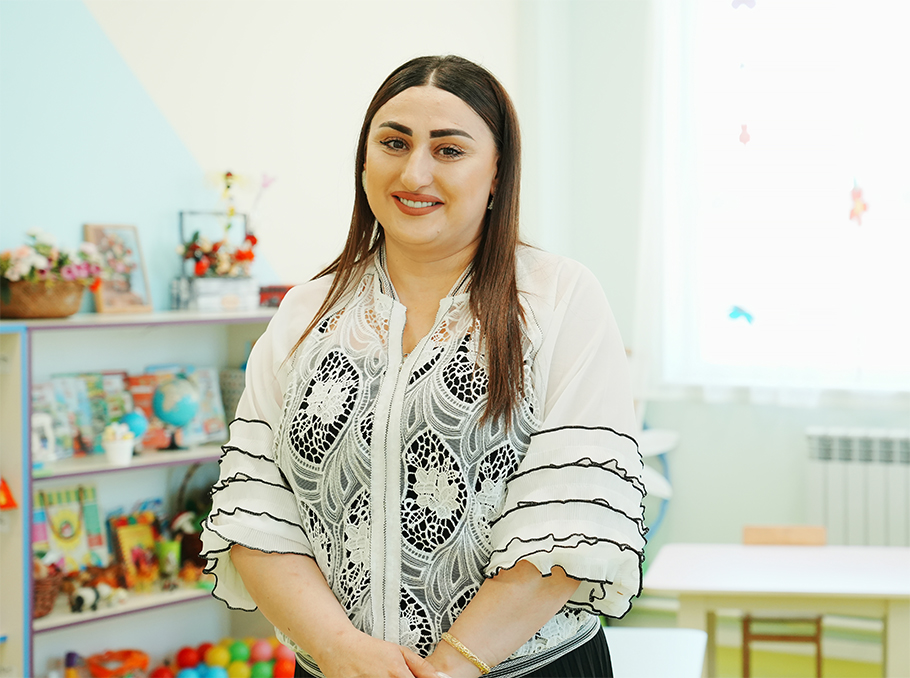 Hripsime Yeritsyan
Hripsime YeritsyanPhoto: Mediamax
"The energy-efficient systems help to maintain a warmer indoor environment while reducing electricity costs. The group rooms and hallways feature vinyl flooring, which ensures a safe and secure environment for the children. The playground has been designed with safety in mind, featuring a rubber surface to prevent injuries during play," the kindergarten director explains.
Before the renovation, the kindergarten faced several practical challenges. "For example, to reach the music hall, children had to move from one building to another. Today, we have a single, beautifully designed space that includes a music hall and a physical education room. In the old building, the kitchen was located in the yard, which caused additional difficulties. In the new building, the kitchen is located on the first floor, offering much more convenient conditions," sayd Yeritsyan.
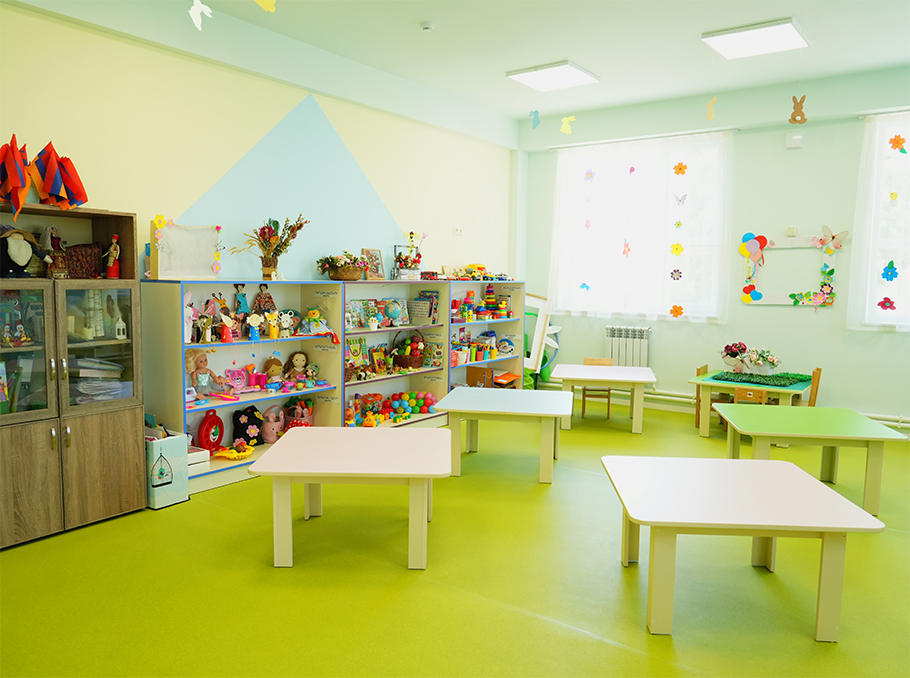
Photo: Mediamax
The total budget for the first phase of the Yerevan Energy Efficiency Programme is €15 million. This includes a €7 million loan from the European Investment Bank (EIB), a €5 million grant from the Eastern Europe Energy Efficiency and Environmental Partnership Fund, €2 million in co-financing from the Yerevan Municipality, and €1 million in support from the United Nations Development Programme. Of the 15 kindergartens involved in this phase, 10 have been rehabilitated, two have been newly built, two kindergartens will welcome children shortly, and remaining one is still under development.
The project has also funded work on 47 public buildings, including 36 kindergartens, nine healthcare institutions, the Hrachya Ghaplanyan Drama Theatre, and the Children and Youth Creative Centre.
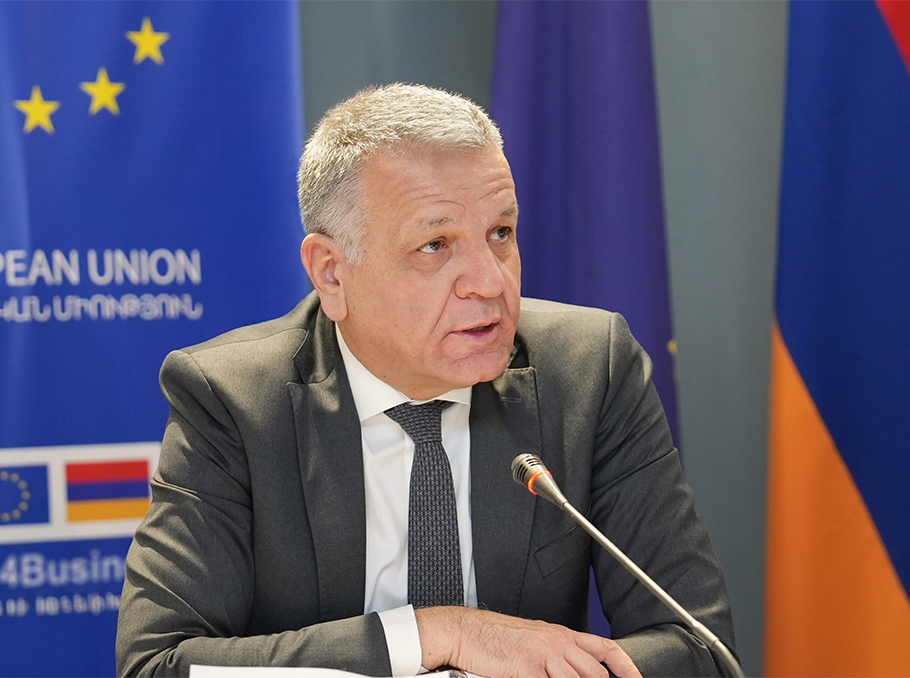 Vassilis Maragos
Vassilis MaragosPhoto: EIB
"I have had the pleasure of attending several kindergarten openings since arriving in Armenia nearly two years ago. I’ve witnessed firsthand how the children benefit from these renovated facilities. Fourteen kindergartens have been completed, and work continues on the final one. Renovations are also underway in other public buildings, with a total of 100 public buildings will be upgraded, including 32 additional kindergartens and six polyclinics," said Ambassador Vasilis Maragos, Head of the EU Delegation to Armenia.
Ambassador Maragos emphasised the role of EU support in making kindergartens more energy-efficient, comfortable, and healthier. "The construction sector is a major contributor to greenhouse gas (GHG) emissions, and both the EU and the Armenian government are focused on reducing GHG emissions and energy consumption in buildings. Improving the energy efficiency of buildings will result in reduced energy costs and lower greenhouse gas emissions. Enhancing the energy efficiency of buildings will also be crucial for increasing Armenia's energy independence and resilience."
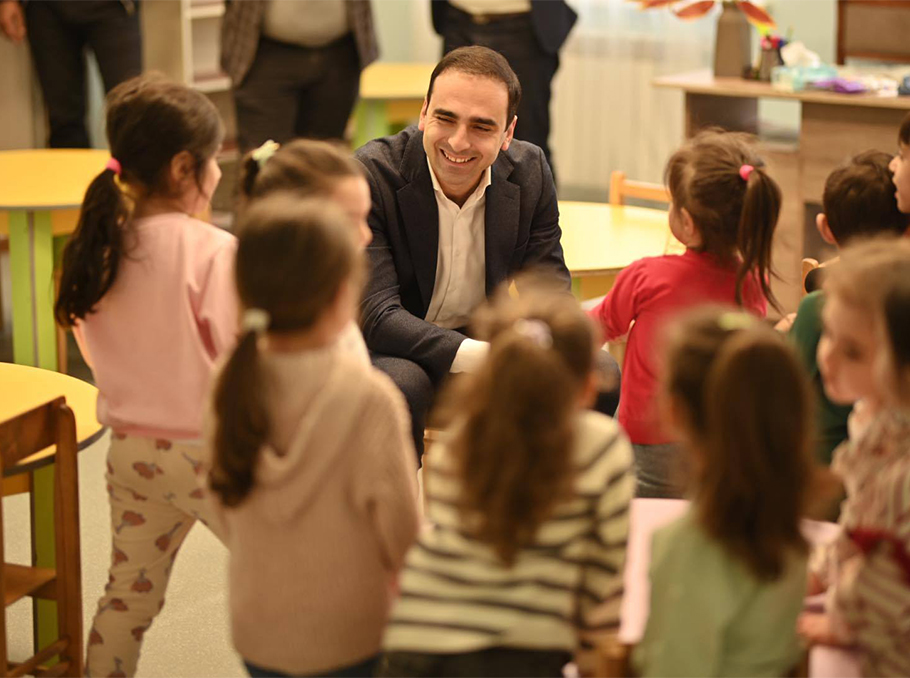 Tigran Avinyan
Tigran AvinyanPhoto: Personal archive
"Partnership with European institutions is essential in realising our vision of a more resilient, inclusive, and forward-thinking Yerevan. The EU and European financial institutions are our partners not only in infrastructure development but also in fostering shared values, solidarity, and responsibility for the public good," said Yerevan Mayor Tigran Avinyan.
Yerevan Municipality is committed to renovating and modernising public buildings, including kindergartens, cultural centres, and healthcare facilities, to improve energy efficiency and enhance seismic safety.
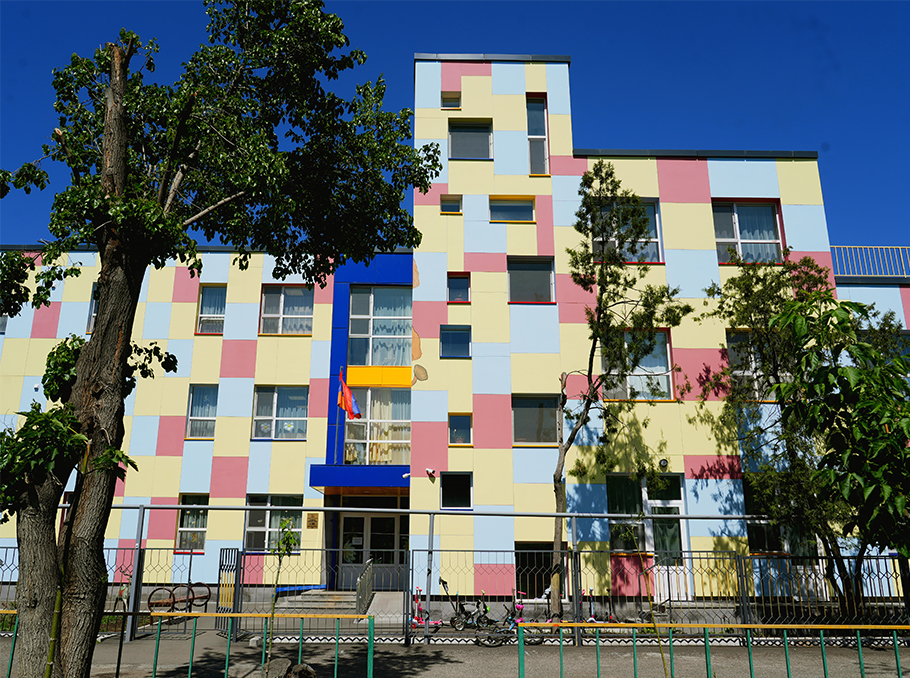
Photo: Mediamax
"Our goal is to ensure that these vital facilities, which serve thousands of citizens daily and where our youngest citizens spend the majority of their day, are healthy, safe, modern, and environmentally sustainable. We are confident that every investment in the modernisation of public infrastructure is a guarantee for the long-term sustainable development and social well-being of the capital," the Mayor said.
Maciej Czura, Head of the EIB's Regional Representation for the South Caucasus, notes that the projects carried out under the Yerevan Energy Efficiency Initiative are steering Armenia toward a greener and more sustainable future.
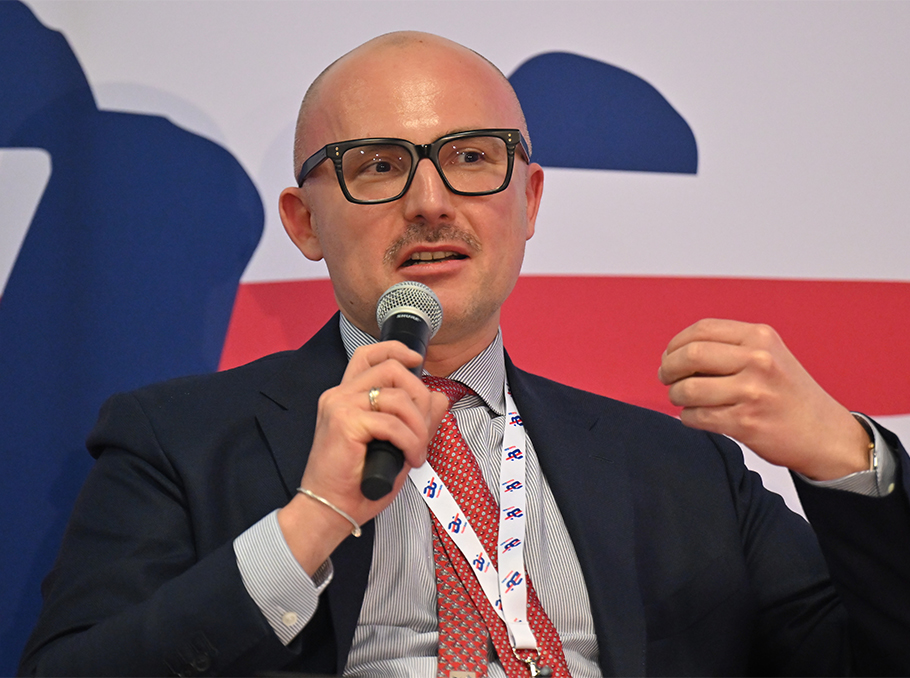 Maciej Czura
Maciej CzuraPhoto: EIB
"By significantly reducing Yerevan’s energy consumption and carbon emissions, this initiative not only tackles critical environmental challenges but also enhances the quality of life for children, educators, patients, and healthcare professionals. With its strong economic and environmental benefits, the Yerevan Energy Efficiency Initiative exemplifies Team Europe’s commitment to fostering meaningful, positive change in Armenia. This initiative underscores the EU and its bank’s dedication to sustainable development, innovation, and the well-being of Armenian communities," sayd Maciej Czura.

Photo: Mediamax
The second phase of the programme (2024-2028) has a total budget of €38 million, with €25 million provided as a loan by the EIB, €11 million in grant from the EU’s Neighborhood Investment Platform, and €2 million in co-financing from the Yerevan Municipality. This phase will expand the scope of renovations and continue to prioritise the improvement of public services and the development of a green urban environment.
Construction of 32 kindergartens will be implemented in coming years with energy-efficient and seismic-resistant solutions. As a result, these kindergartens will accommodate approximately 6,200 children. Additionally, rehabilitation of six health centres is part of the second phase with similar modern energy-efficient and seismic-resistant solutions, benefiting approximately 370,000 patients annually.
The work is being carried out across various districts of Yerevan, including Ajapnyak, Avan, Kanaker-Zeytun, Shengavit, Nor Nork, Arabkir, and Malatia-Sebastia. The selection of buildings for renovation is based on factors such as technical condition, population density, and community priorities.
Arpi Jilavyan
Photos by Agape Grigoryan









